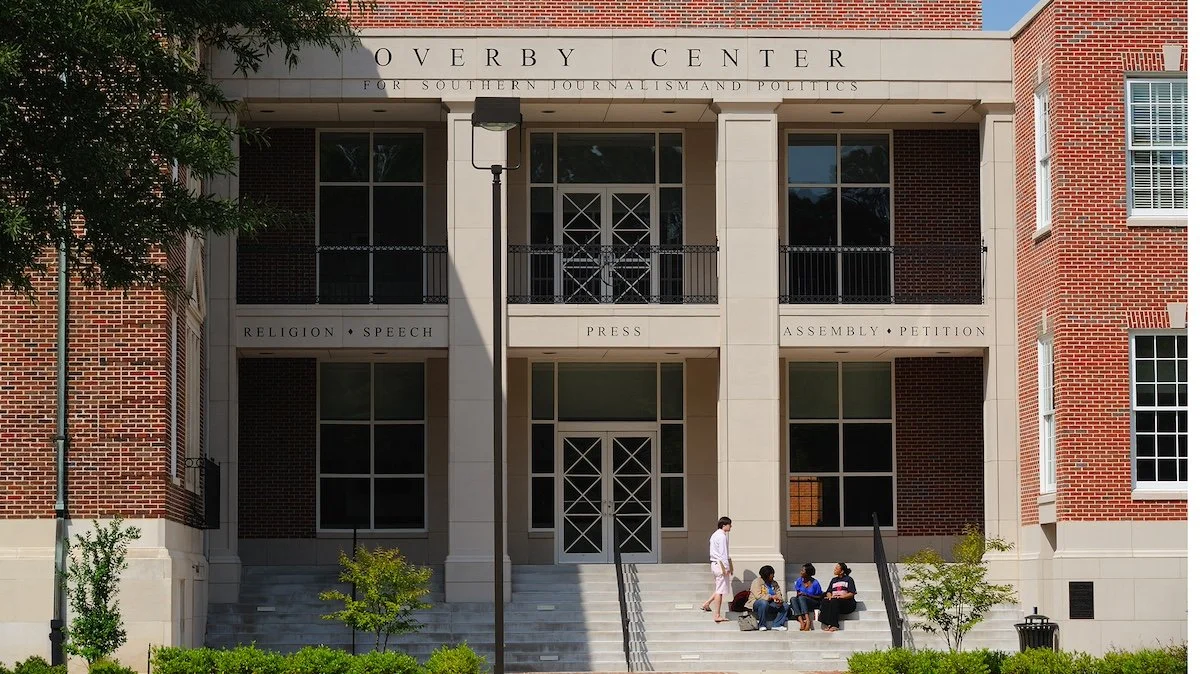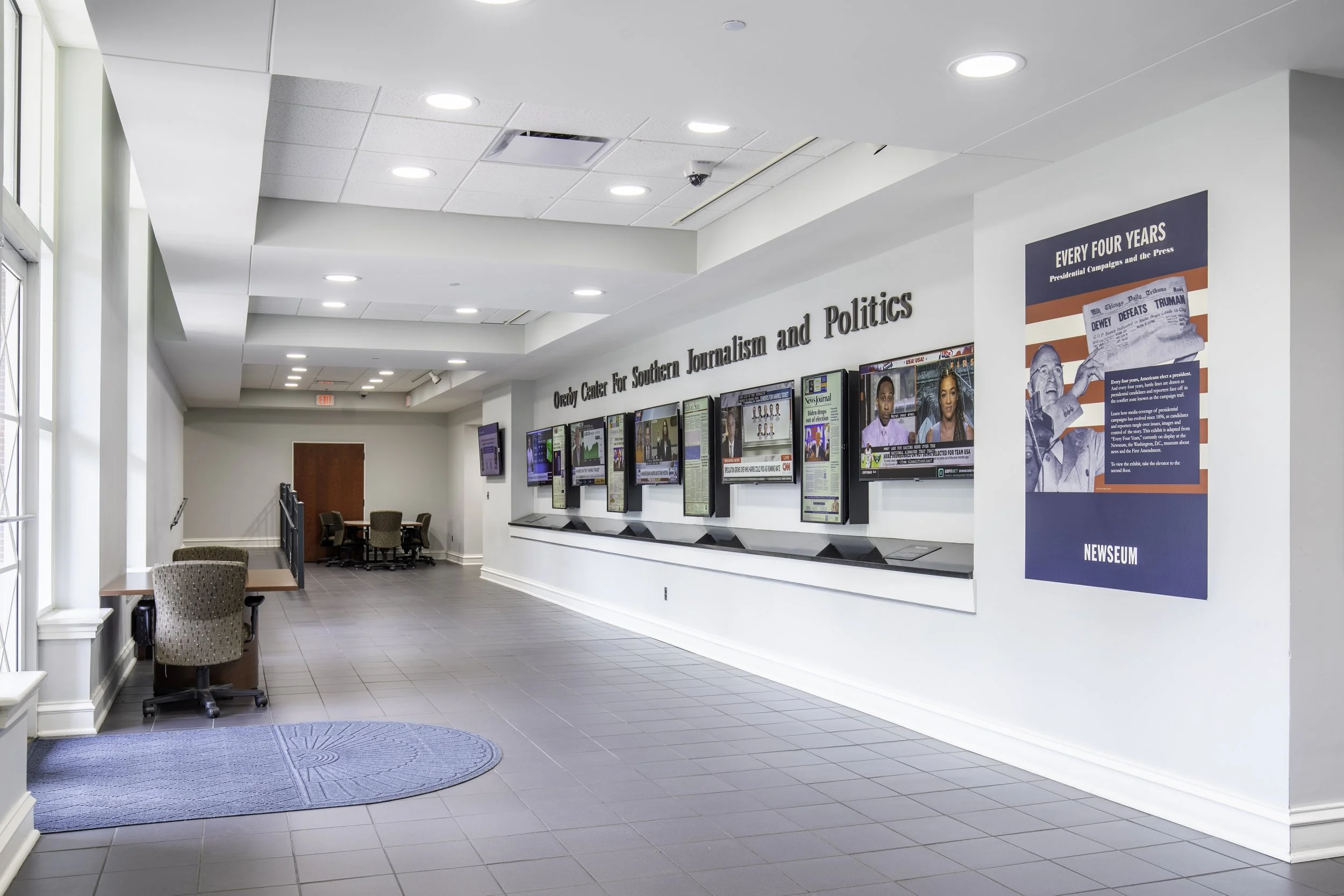About the Overby Center
The Overby Center for Southern Journalism & Politics offers timely perspectives rooted in foundational democratic values. Our work and programs advocate for the highest standards of journalism, the importance of a fair and free press, and the principles of the First Amendment.
The Overby Center is an independent center based at the University of Mississippi, where it collaborates with the School of Journalism and New Media and the Lott Leadership Institute. It is an affiliate of the Freedom Forum in Washington, D.C. The center’s staff and experts cover trends unfolding in the South, while also providing a Southern lens on national issues.
“Southern journalists and politicians have shaped our country’s destiny from its beginning, for better and for worse. From the Old South to the New South, their passions and principles, their vigor and style have made our region formidable, tragic, mythic and historic.”
— Charles Overby

Our legacy
The Overby Center was established in 2007 with a $5 million gift from the Freedom Forum, led by Al Neuharth, chairman of the foundation and founder of USA Today. It honors the legacy of Mississippi-born journalist and First Amendment advocate Charles Overby, who continues to serve as the center’s chairman.
Today, the Overby Center continues to host in-person lectures, panels and dialogue events, while also extending its reach online through digital content. It produces a weekly roundup of interviews and commentary in the “Around the South” newsletter.
The Overby Center’s investment in the front lines of free speech includes sponsorship of the Mississippi Scholastic Press Association, which convenes, connects and celebrates the work of high-school journalists across the state.

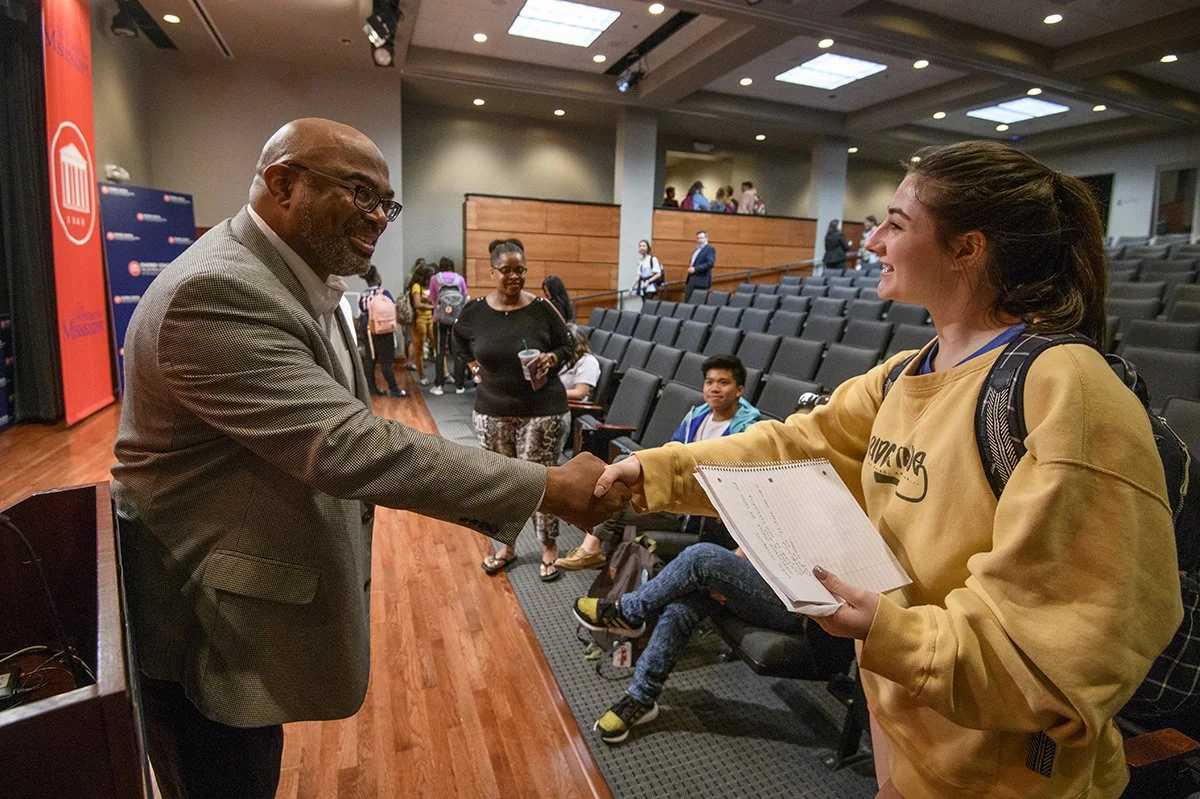
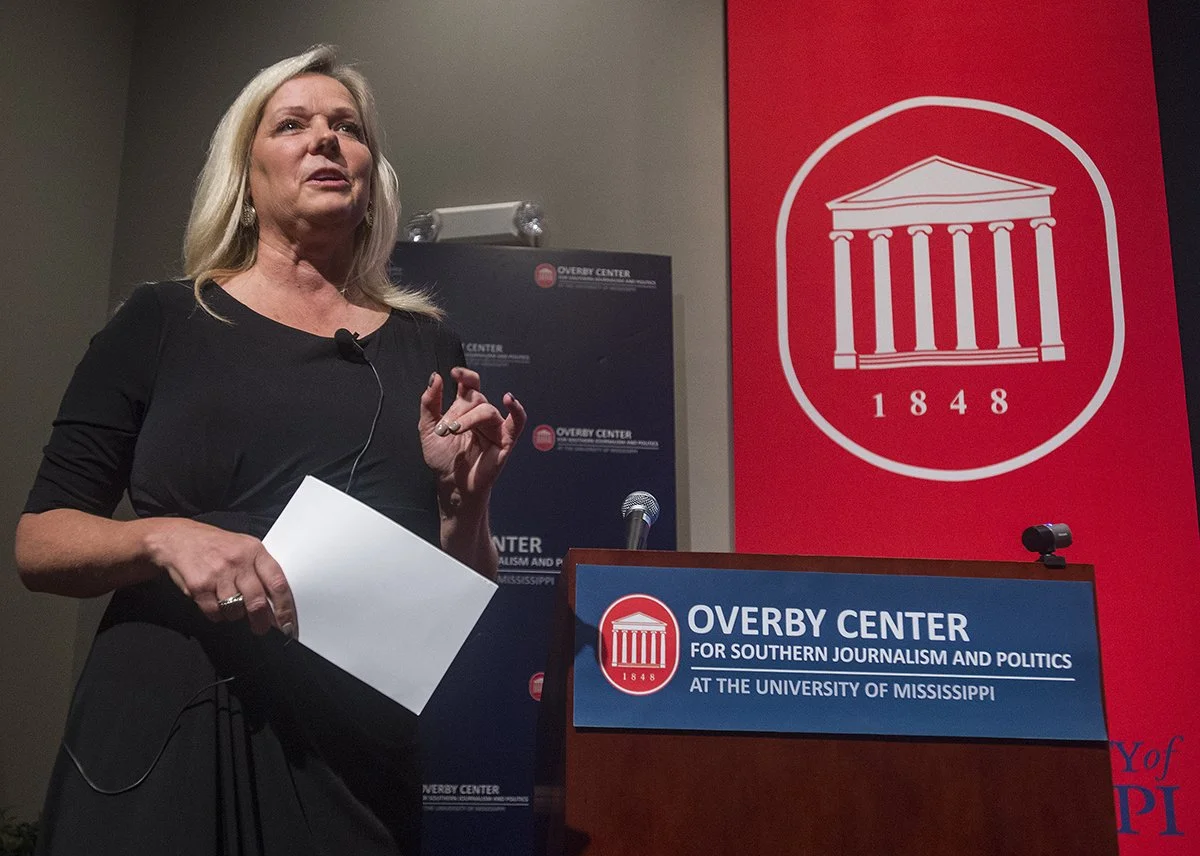
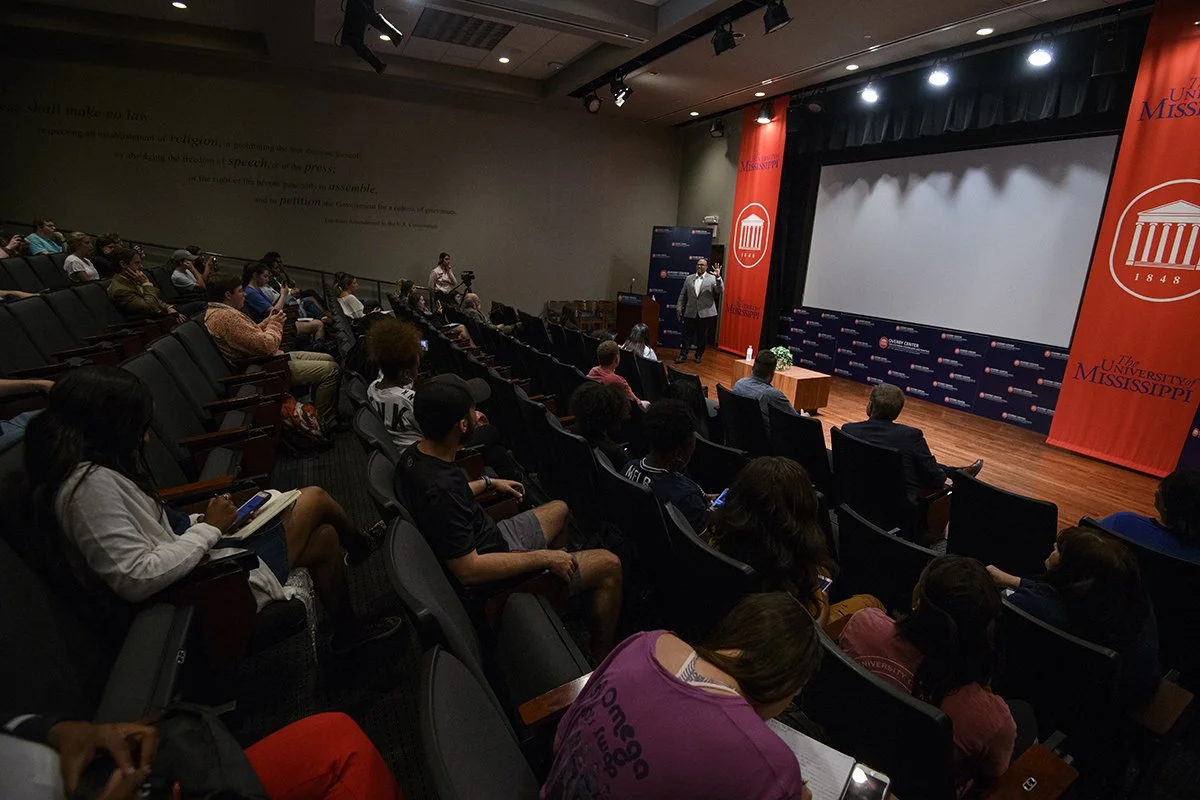


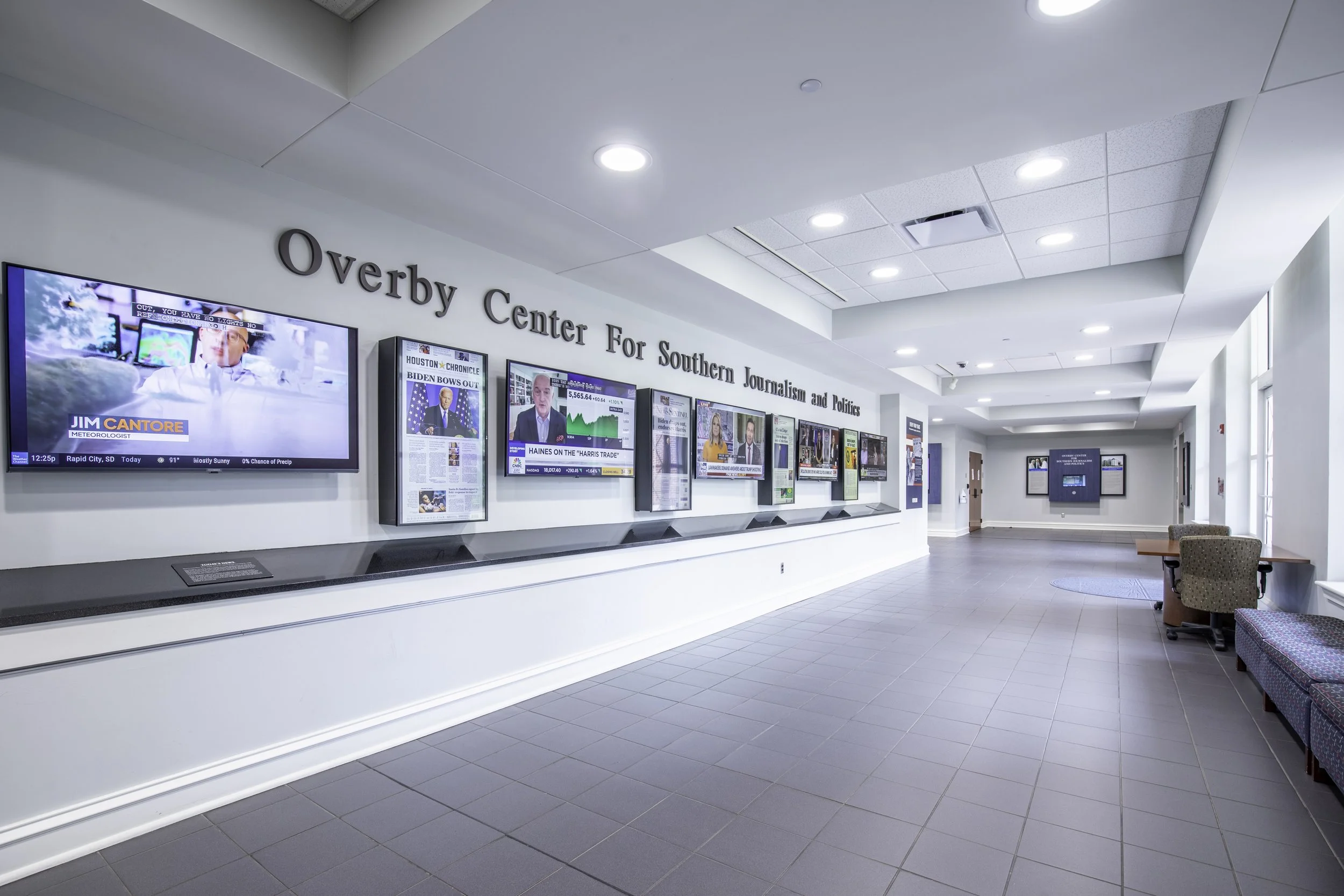
Our facility
The Overby Center’s facility is adjacent to Farley Hall, home of the University of Mississippi’s School of Journalism and New Media, at the heart of the Ole Miss campus in Oxford, Miss.
The center’s facilities provide 16,000 square feet of conference space, including a 200-seat auditorium; a multipurpose conference room that seats 50-100 for seminars or seated dinners; and a boardroom that seats 24.
Its public spaces feature museum-style installations that reveal the history of American journalism, along with a video display of nine large-screen monitors showing the current day’s front pages from newspapers across 12 Southern states.

